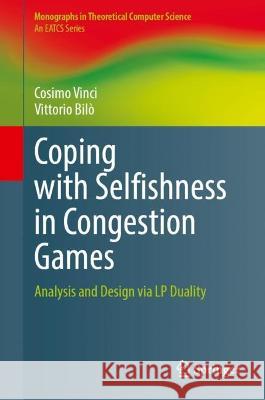Coping with Selfishness in Congestion Games: Analysis and Design Via LP Duality » książka
topmenu
Coping with Selfishness in Congestion Games: Analysis and Design Via LP Duality
ISBN-13: 9783031302602 / Angielski
Coping with Selfishness in Congestion Games: Analysis and Design Via LP Duality
ISBN-13: 9783031302602 / Angielski
cena 685,93
(netto: 653,27 VAT: 5%)
Najniższa cena z 30 dni: 655,41
(netto: 653,27 VAT: 5%)
Najniższa cena z 30 dni: 655,41
Termin realizacji zamówienia:
ok. 16-18 dni roboczych.
ok. 16-18 dni roboczych.
Darmowa dostawa!
Kategorie:
Kategorie BISAC:
Wydawca:
Springer
Seria wydawnicza:
Język:
Angielski
ISBN-13:
9783031302602











